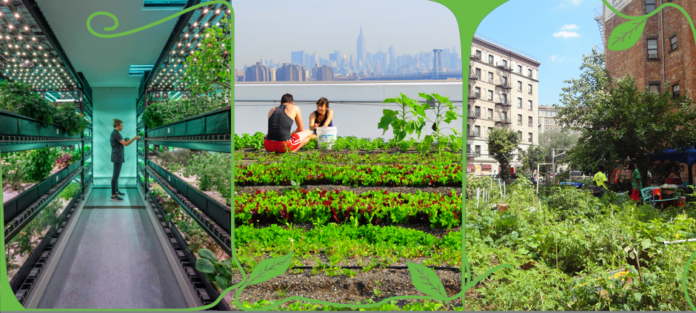“Farming looks mighty easy when your plow is a pencil and you’re a thousand miles from the cornfield”
– Dwight D. Eisenhower
Agriculture and cities have always been closely interwoven, and yet are often seen as contradictions. It has always been considered a rural occupation. Cultivation meant operating farmlands in the countryside, far away from the concrete jungles of industrialized cities, but a growing need for food security is challenging these traditional ideas. The world population is on its trajectory to reach 9.3 billion by 2050. This calls for enhancement in food production, an undertaking that is sure to find a roadblock in declining natural resources. The pressure to ensure food security will greatly affect India, the world’s second-most populous nation. According to the United Nations (UN) Hunger Report, 15.2 percent of the Indian population is already undernourished.
With rising food prices and increasing incidence of extreme climatic events, the Food and Agricultural Organization of the United Nations (FAO) has identified urban agriculture as a farming system that can contribute to the domestic food and nutritional security, create jobs, and improve urban ecology and sanitation. This trend of urban farming is gaining popularity in several countries and India is no exception. As more people aggregate in megacities, urban agriculture is starting to be viewed as a sustainable way to produce and efficiently supply locally-grown fresh produce to cities. These individuals with their rooftop vegetable and fruit gardens and even mini-paddy fields supply their own kitchens and those of friends and family year-round. Hydroponics and vertical farming techniques are also gaining major ground. More than food, urban farmers are growing the community. Urban agriculture programs have been able to transform urban communities in ways that far surpass city beautification and cultivation. Many urban farming startups are coming up and facilitating small scale urban farming, for individual homes and institutions. There are many aspects of urban farming that still need our attention and work. It is evident that urban farmers are trying to change the conventional agricultural practices which involved planting one sapling at a time and hoping it goes a long way in making us a nation that is self-sufficient in food production.


